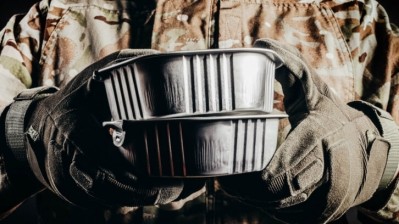Fueling the firefighter and tactical athlete with creatine

“Given the increased interest in firefighter nutrition and the purported benefits of creatine supplementation, this narrative review aims to (1) highlight how creatine monohydrate (CrM) supplementation can improve firefighter health and performance, (2) provide practical recommendations and (3) outline current gaps and future directions,” the reviewers wrote.
Conducted by researchers from Texas A&M University, Brandon University, Fire Rescue Wellness, Mayo Clinic Health System, Olmsted Medical Center-Sports Medicine, Rooted in Dietetics, University of Houston, University of Regina and the U.S. Army John F. Kennedy Special Warfare Center and School, the review considered data published on PubMed, Google Scholar and fire department websites between 1952 and June 2024.
In the line of duty
The paper noted that over the last century, the role of firefighters in the United States has evolved beyond structural firefighting to providing all-hazard services—from fending off wildfires to motor vehicle extrications to responding to acts of terrorism.
“Firefighters, tactical police officers and warriors often engage in periodic, intermittent, high-intensity physical work in austere environmental conditions and have a heightened risk of premature mortality,” the researchers wrote. “In addition, tough decision-making challenges, routine sleep deprivation and trauma exacerbate this risk.”
Muscular strength, power, endurance, mobility, stability, mental acuity, executive functioning and body composition are highlighted as important factors in optimizing occupational performance and mitigating risks including heat stress, cardiovascular strain, exposure to toxic fumes and traumatic brain injuries.
Potential benefits and applications
Considering the occupation-specific factors and the extensive research on CrM as ergogenic aid, the reviewers suggested that supplementation can benefit firefighters and others in tactical professions due to its effects on exercise, cognitive performance and various other health parameters.
“Recent evidence demonstrates that CrM can improve anaerobic exercise capacity and muscular fitness performance outcomes and aid in thermoregulation, decision-making, sleep, recovery from traumatic brain injuries (TBIs) and mental health,” they wrote.
In addition, CrM may provide antioxidant and anti-inflammatory benefits to counteract oxidative and physiological stress inherent in tactical occupations that can lead to systemic inflammation and increase the risk of chronic diseases.
“Firefighters, police officers, and military personnel who perform similar occupational tasks should consider supplementing their diet with 5 g/day of CrM to enhance exercise and occupational performance outcomes, whereas high doses (20–30 g/day) are likely needed to confer mental and brain health benefits,” the review concluded, noting that the higher dose could also mitigate concussions and sleep loss-related stress.
The researchers called for future studies on acute and prolonged CrM supplementation to assess the impact on occupation-specific performance, stress response and brain health benefits, noting that only one study to date has directly explored effects of among firefighters.
Source: Nutrients
doi: https://doi.org/10.3390/nu16193285
“Fueling the Firefighter and Tactical Athlete with Creatine: A Narrative Review of a Key Nutrient for Public Safety”
Authors: Drew E. Gonzalez et al.
















